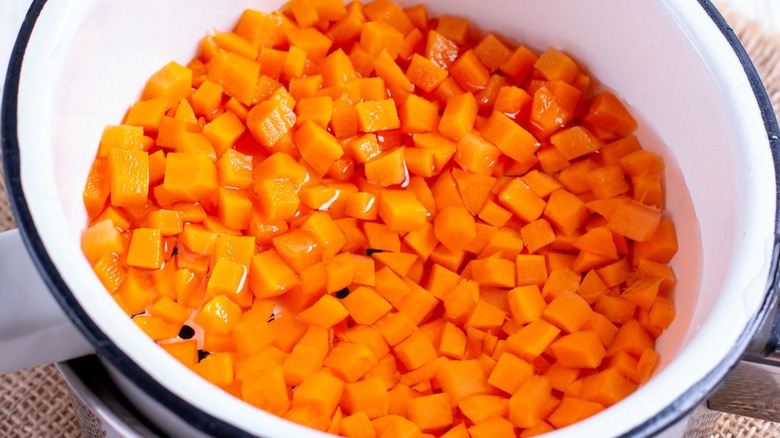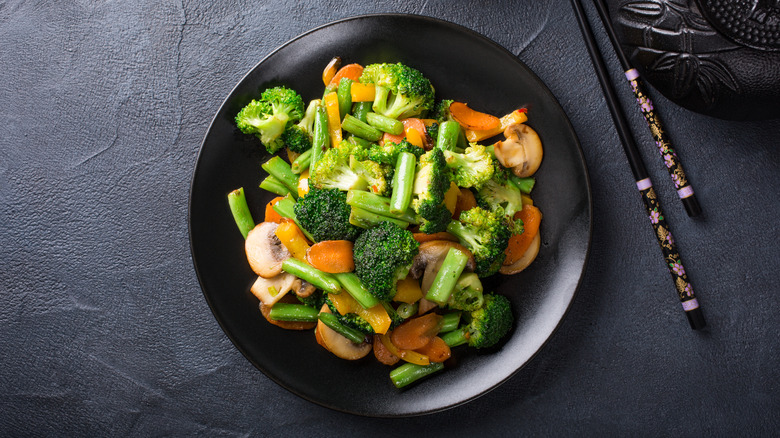Avoid The Mistake Of Overcooking When Blanching Carrots
Blanching is an important precursor to preserving and cooking carrots, with various benefits to their color, flavor, and texture in any recipe that features them. By definition, blanching gives food a quick boil, followed by an ice bath to stop any further cooking. The boil sanitizes the carrots of any harmful microorganisms and residual dirt, partially cooks them to reduce subsequent cooking times, brightens the vibrance of their orange hue, and maximizes their texture and flavor by destroying certain harmful enzymes.
While blanching may sound like a short and simple process, it requires careful precision. You have a small margin of error between blanched and overcooked, which will effectively reverse all the benefits that blanching bestows. Boiling times are specific to the vegetable's size, and carrots are large with variable thickness. Consequently, the best way to avoid overcooking carrots when you blanch them is to break them down into smaller, same-sized pieces.
By cutting or dicing carrots into same-sized coins or squares, you'll equalize the cooking time, allowing you to set the precise boiling time required for blanching. Diced or coined carrots require three minutes in boiling water, while baby carrots or carrot sticks require five minutes.
More crucial vegetable blanching tips
You should keep a watchful eye on blanching vegetables like carrots as they boil, setting a timer and having an ice bath ready to shock them the moment the timer rings. If you don't transfer them to an ice bath right away, they'll continue to cook, resulting in overcooked, dull, and flavorless carrots. It's also important to salt the boiling water before adding the carrots to preserve their flavor. If you don't salt the water, the sugar and salt in carrots will leech into the boiling water via osmosis.
The blanching process will take you less than ten minutes and will prepare your carrots for numerous uses. Most frozen and canned vegetables you buy at the grocery store undergo blanching in preparation for preservation. If you have a surplus of carrots, you can blanch them before drying them and putting them into freezer-safe containers or ziplock bags to freeze. Also, if you're a meal planner, you can blanch and freeze carrots, dividing them into nightly or weekly meal prep portions.
You can also blanch carrots to prepare them for direct use in cooking methods like stir-frying, searing, and roasting. Blanching them will reduce the time it takes for them to cook, which is especially useful when mixing them into a vegetable medley alongside quick-cooking vegetables; it'll allow you to throw all the ingredients in the stir fry or oven at the same time for an easier, more streamlined experience.

